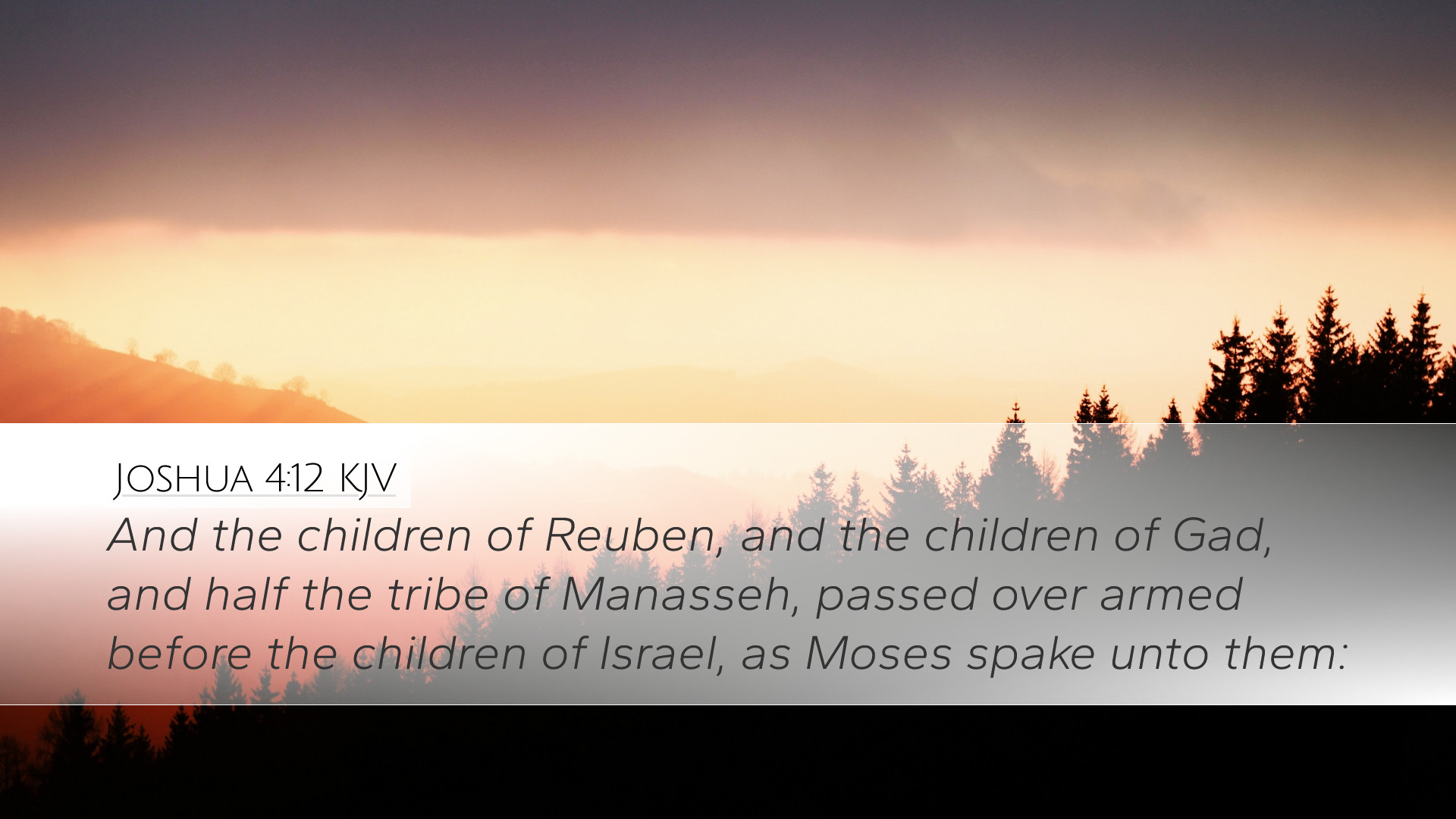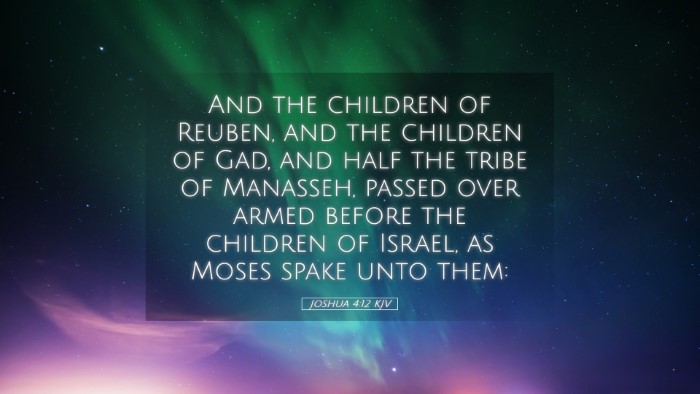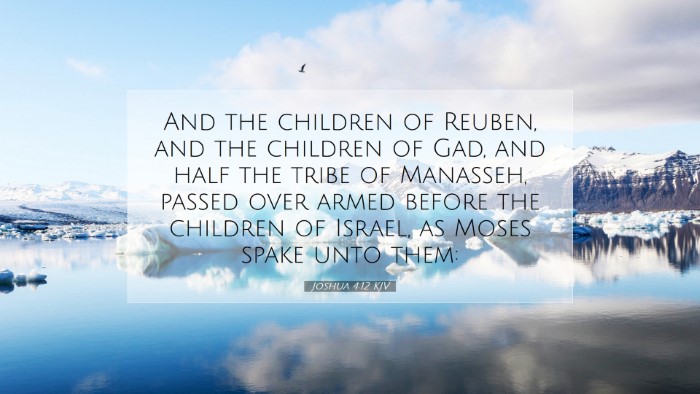Old Testament
Genesis Exodus Leviticus Numbers Deuteronomy Joshua Judges Ruth 1 Samuel 2 Samuel 1 Kings 2 Kings 1 Chronicles 2 Chronicles Ezra Nehemiah Esther Job Psalms Proverbs Ecclesiastes Song of Solomon Isaiah Jeremiah Lamentations Ezekiel Daniel Hosea Joel Amos Obadiah Jonah Micah Nahum Habakkuk Zephaniah Haggai Zechariah MalachiJoshua 4:12
Joshua 4:12 KJV
And the children of Reuben, and the children of Gad, and half the tribe of Manasseh, passed over armed before the children of Israel, as Moses spake unto them:
Joshua 4:12 Bible Commentary
Commentary on Joshua 4:12
Joshua 4:12 states:
"And the children of Reuben, and the children of Gad, and half the tribe of Manasseh passed over armed before the children of Israel, as Moses spake unto them."
This verse plays a pivotal role in understanding the leadership of Joshua and the unity among the tribes of Israel during the conquest of Canaan. The following sections summarize insights from prominent public domain commentaries.
Context and Background
The crossing of the Jordan River and the commitment of the tribes to aid their brethren in the conquest of Canaan is foundational for readers' comprehension of the communal aspects of ancient Israelite identity. In preparing to enter the Promised Land, unity among the tribes was essential for ensuring their success against formidable foes.
Exegesis and Key Themes
-
Faithfulness to Command:
As highlighted by Matthew Henry, the passage serves to illustrate the obedience of the Reubenites, Gadites, and half the tribe of Manasseh in committing themselves to follow the instructions given by Moses. This demonstrates their loyalty and faithfulness to God's directions as articulated through His servant.
-
Tribes in Unity:
According to Adam Clarke, the mention of these tribes crossing over armed signifies their willingness to support their fellow Israelites in combat. This act symbolizes the importance of solidarity and cooperation among the tribes, showcasing God’s design for Israel as a unified entity rather than a collection of separate tribes.
-
Preparation for Battle:
Albert Barnes notes that the readiness of these tribes to cross the Jordan armed reflects a military preparedness that was critical for the challenges ahead. Their strategic action emphasizes the necessity of taking decisive steps in faith while relying on God’s promised support.
Theological Insights
This verse inspires reflections on several theological concepts:
-
Covenant Community:
The collaboration of these tribes reinforces the idea of a covenant community. Each tribe has its role and responsibility, echoing the New Testament concept of the body of Christ. Pastors can draw on this for teachings about interdependence within the church body.
-
Obedience and Faith:
The active participation of these tribes underscores a theme of faith that manifests in tangible actions. It serves as an encouragement to believers to couple faith with action as they navigate life's challenges.
Practical Applications
For contemporary application, this verse challenges Christian communities to:
- Examine their role within the body of Christ and ensure they contribute actively to communal goals.
- Embrace the call to unity, armed with the understanding of God's promise to support them in their collective mission.
- Prepare spiritually, following the example of the tribes who ventured forth with readiness for battle, symbolically reflecting on the necessity of spiritual preparation in the face of trials.
Conclusion
Joshua 4:12 encapsulates themes of obedience, unity, and preparation, all of which are critical to the Israelite narrative and significant for modern believers. The insights gathered from esteemed commentaries provide a foundational understanding for pastors, students, theologians, and Bible scholars, encouraging them to reflect on the communal aspect of faith and the importance of zealous participation in God's purposes.


